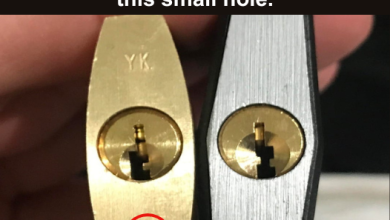I’ve always thought of a pumice stone as a torture instrument for scraping dry, rough skin from my poor, cracked heels, but did you know it can be used for a variety of other things?
The Humble Pumice Stone
Let’s start with a quick lesson on pumice. Pumice is a type of volcanic rock, formed by cooled lava. The porosity of pumice stones is caused by exploding gas bubbles that were trapped under pressure in the lava. It’s similar to shaking a can of carbonated soda and then opening it, allowing a bubbly, frothy mess escape. Pumice is made from an explosion of lava froth that cools before it gets a chance to solidify back together into one solid piece of rock, creating a rock with “bubbles” in it, which we call pores. These pores are what allows a pumice stone to absorb water without breaking or becoming damp.
Pumice is extremely lightweight but strong enough to be used as an abrasive. Most people think of pumice as a tool for removing dead skin cells, corns, and calluses from your feet, but this under-appreciated lava stone is used in everything from dental products to scouring powders, water filtration systems, concrete, grout, potting soil, and more! Most of us won’t be using pumice for its industrial purposes, but it’s useful for more than quick exfoliation in the shower.
Other Uses for Pumice
De-pill Sweaters

To use, rub the pumice stone across pilling areas of your sweater. Then use a lint roller to pick up the pills. I recommend using a high quality pumice stone. Cheaper ones will flake off on your clothes. You can even find stones specifically meant for use on sweaters.
Clean Your Toilet

If that cleaner doesn’t get the yellow ring off your toilet bowl, a pumice stone will surely do the trick! Just remember to soak the stone in water for a minute or two before using, or it will scratch your toilet.
Clean Your Oven

My favorite way to clean my oven is using the ammonia method. However, I often get requests from blog readers who don’t like using ammonia. Using a pumice stone is a great alternative! It takes a little more elbow grease than the ammonia method, but it’s definitely an effective, natural remedy for a dirty surface
Remove Dog and Cat Hair from Upholstery and Carpets

It works the same way on car seats, couches, rugs, etc. A pumice stone is rough enough to scrub pet hair off of upholstery fabrics without damaging it.
Hair Removal

Did you know you can remove body hair with a pumice stone? This unconventional hair removal method is simple to do and more gentle on your skin than other methods. Soak a pumice stone in warm water for about 5 minutes. Lather skin with soap and gently rub the wet stone on your skin in a small circular motion for 1-2 minutes. (Don’t scrub! Heavy friction can damage your fragile skin. Light pressure is sufficient.)
Essential Oil Diffuser

Put about 35 drops of your favorite essential oils on a pumice stone. The porous nature of the pumice allows the oils to slowly diffuse into the air. C
Manicure Tool

Use a damp pumice stone to help remove excess skin from cuticles before painting your nails. Again, gentle pressure is enough. Tough skin like stubborn calluses on your feet can handle it, but most other places on your body can’t.
Homemade Soap

You can use pumice stone powder to make homemade soap.
Choosing The Right Pumice Stone
Natural and synthetic stone categorizations are a bit fuzzy, because the pumice stone industry is not regulated. Most consumers assume that a natural stone is made entirely from cooled lava while synthetic stones are made from other materials, but it’s not really as simple as that. So if using an organic stone is important to you, make sure you do your research when deciding which one to buy.
Natural Pumice Stone
Volcanic pumice stones are often marketed as “Volcanic Lava” pumice stones. They usually have an earthy color (browns, greys, blacks) and are pretty tough. Volcanic lava stones are a type of igneous rock, so they last a while. They are a good choice when you’re looking for a stone to use on your body. Because they are made without extra chemicals, you don’t have to worry about adverse reactions on your skin.







